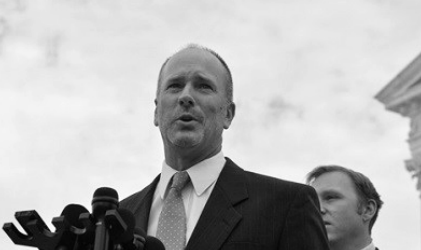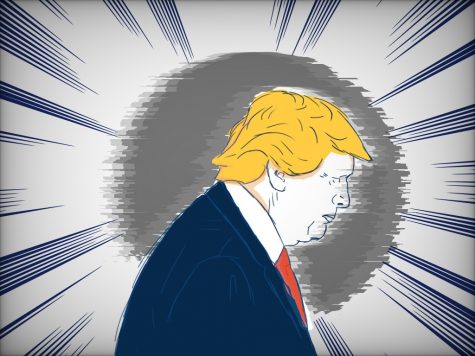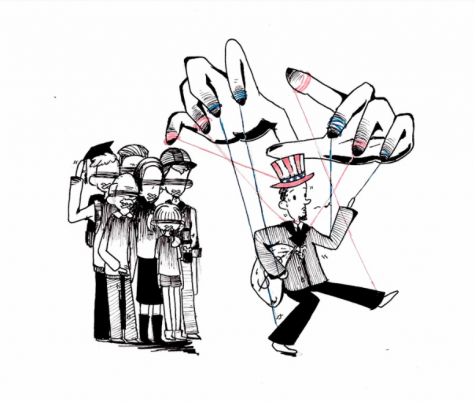Civil Rights For The LGBTQ Community

Gerald Bostock addressing a crowd of news reporters.
In 2013, Gerald Bostock was fired for “conduct unbecoming” after he joined a predominantly gay softball league that was created as a safe space for the LGBTQ community in Atlanta. Bostock had worked as the coordinator of child welfare services for a county government office in Georgia. He claimed that when he joined the league, his office became aware of his sexual orientation and subsequently fired him.
His case appeared in the Supreme Court on October 8; currently, a vote is pending. This vote will decide whether protections are afforded to members of the LGTBTQ community in the workplace.
However, these legal protections should never have been in question to begin with. They are a basic component of human rights. No one should be discriminated against based on facets of their identity over which they have no control.
This case will set a precedent for interpretations of Title VII of the Civil Rights Act of 1964, which prohibits discrimination against employees based on gender, race, nationality, and religion. The justices will vote on whether it encompasses sexuality as well.
According to NBC News, “The state of Georgia says Congress never intended to include sexual orientation when passing the law more than half a century ago.” However, with time, our society has evolved, and our laws must shift to reflect this progress. Regardless of who the act was meant to protect at the time of its passing, the intention of the law should be kept separate from its enactment. Therefore, the Civil Rights Act should always be interpreted to reflect the Fourteenth Amendment, which gives citizens the right to life and liberty.
Since the legalization of same-sex marriage in 2015, the political landscape of the Supreme Court has changed with Trump’s two new appointed justices, conservatives Neil Gorsuch and Brett Kavanaugh. Gorsuch’s support of Trump implies that he agrees with Trump’s previous statement that organizations have the right to refuse LGBTQ patrons service on religious grounds. While Kavanaugh has not voted in a supreme court case regarding LGBTQ rights, he has received approval from the Federalist Society, a group with known anti-LGBTQ sentiments. This indicates that he will be more likely to side with the state of Georgia’s claim that “the ordinary meaning of ‘sex’ is biologically male or female. It does not include sexual orientation…an employer who discriminates against employees in same-sex relationships thus does not violate Title VII as long as it treats men in same-sex relationships the same as women in same-sex relationships,” as The New York Times reported. While the meaning of “sex” when this act was passed may have been exclusively limited to a person’s biological sex, this needs to be expanded to cover basic human rights for all groups of people.
Due to the ambiguity about sexualities in Title VII, there are still 29 US states in which it is not explicitly illegal to fire someone due to their sexual orientation. If Bostock wins, however, his case would provide safety and job security for members of the LGBTQ community across the country. m
If Bostock wins, millions of Americans will be provided with the freedoms that they are entitled to. Additionally, a ruling that Title VII should protect members of the LGBTQ community will enforce the American principle that the laws are created to serve the people. Bostock is unequivocally right – this law from the 1960s must evolve to reflect our current society.











